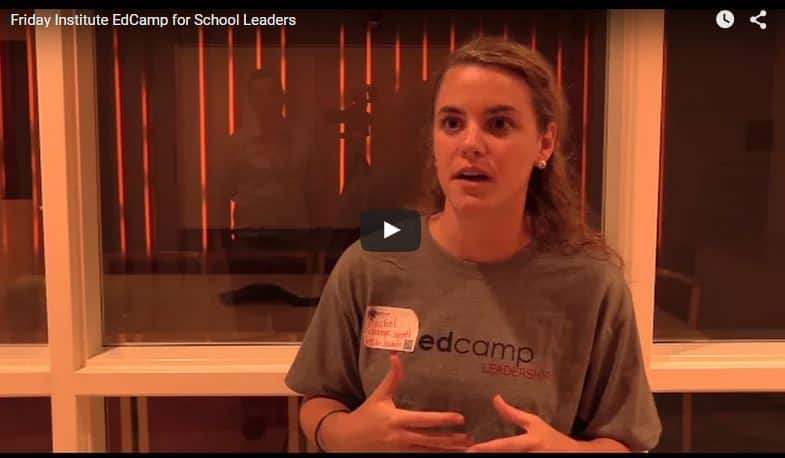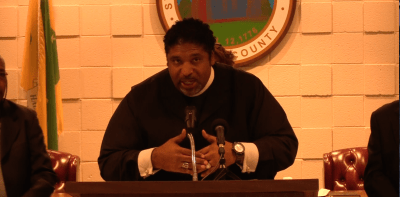

With the end of Race to the Top, the state is being left with gaping holes in its education coffers, including money for professional development.
According to Phillip Price, the Department of Public Instruction‘s chief financial officer, the State Board of Education requested in its continuation budget $4.4 million in recurring dollars to continue professional development efforts funded by Race to the Top.
DPI used the Race to the Top funds to create three summer institutes, which provided professional development across the state. DPI was also able to conduct 450 face-to-face sessions each year, prepare more than 477,000 online learning modules, and reach more than 60,000 teachers every year, according to the letter sent by the State Board of Education to the state budget director requesting the funding.
However, the Senate’s proposed budget did not appropriate any money for professional development.
The House has included some funding, but the money is focused on specific programs:
- $3.9 million non-recurring for a regional leadership academy
- $2.4 million recurring for regional education services alliances
- $126,500 non-recurring for AP summer professional development institutes
- $1.2 million recurring to VIF international education
- $300,000 non-recurring for a distinguished leadership in practice program
- $5 million to support professional development for education leaders in LEAs as part of the state’s Digital Learning Plan
Complicating this picture is a recent study by TNTP — formerly called The New Teacher Project — which shows questionable benefits to professional development.
The study examined three large school districts and one charter network organization. — altogether made up of 20,000 teachers and 400,000 students, mostly low-income. The districts studied spent $18,000 a year per teacher on average in professional development efforts, and yet no pattern could be found to indicate that teachers who improved did so as a result of any particular kind of professional development.
With the end of Race to the Top funds and an open question as to whether DPI will get the funding it needs for professional development, alternative models may be the path educators take in the future.
One way forward may be partnerships. On August 20, Charlotte-Mecklenburg Schools (CMS) and Discovery Education are holding a professional development session on digital math textbooks and how to use them in the classroom.
The school system has been working with Discovery Education since 2008, and the Charlotte-Mecklenburg Schools use Discovery’s digital science and social studies textbooks (called Techbooks by Discovery) in their classrooms. This year, the school system is rolling out Discovery’s digital math textbook in middle schools, and its digital science textbook in its elementary schools.
The focus of the professional development session is on how teachers can best integrate the Discovery Education Math Techbook™ in learning.
Another path to professional development may be Edcamps, which serve as a peer instructional workshop for educators.
An Edcamp for education administrators was recently held at the Friday Institute for Educational Innovation. The videos below highlight the experience.
Superintendent June Atkinson speaking at Edcamp
Edcamp: A day in the life
In her blog in June, Superintendent Atkinson talked about Edcamp:
Education conferences, seminars, quarterlies, convocations, workshops, trainings, sessions – you name it and I bet I have attended at least one at some point over the past three decades. When you put inspired and enthusiastic educators in a room together and you give them the opportunity to talk and share with one another, magic happens. But sometimes, that magic can be diluted by agendas that are too full, keynote speeches that are too long, networking breaks and brainstorming sessions that are too short and of course, the ever-present parade of PowerPoint presentations. And then along came Edcamp.
Edcamp bills itself as an “unconference,” and I attended my first one ever at the N.C. State Friday Institute last week. I was not sure what to expect from an event with no agenda or planned breakout sessions, but I was excited to hear from educators across the state about what is important to them right now. My first “unconference” experience far exceeded my expectations, and I cannot wait to attend my next Edcamp.
Some of Edcamp’s major strengths are that the participants, mostly principals and teachers, set the agenda and provide the content. They come up with the ideas for sessions based on what they want to hear about right now. Then it is up to participants to take charge and facilitate each session. Anyone can be a presenter. Teachers who have never met before may end up leading a session together. Principals from schools in opposite ends of the state may be facing the same challenges and can develop their own session. And each participant chooses sessions that meet their needs. Edcamps derive their value from what every participant brings to the table on that day, and these thoughts and experiences can be much more useful than any handout or planned presentation.
Another thing that makes Edcamps so remarkable is that they are free to participants, they are held in a non-commercial and vendor-free environment and they can be hosted by any organization interested in furthering the Edcamp mission. Hundreds of Edcamps have been held all over the world since 2011. The one held last week in Raleigh was the state’s first Edcamp targeted for school leaders, and I certainly hope it won’t be our last. To learn more visit, edcamp.org/.


